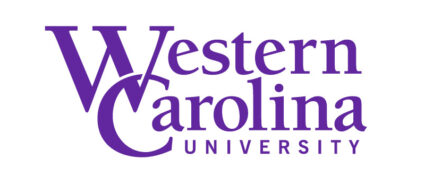Earn Academic Credit During Your Gap Semester
Adventure Treks will not be running a gap semester for fall 2024. Please reach out to us at 828-698-0399 for questions about 2025 and beyond.
Adventure Treks students have the opportunity to earn academic credit through either Portland State University (PSU) or Western Carolina University (WCU).
 Portland State University
Portland State University
As a Gap Year Association–accredited organization, Adventure Treks students can enroll in up to four courses through Portland State University to earn academic credit.
Courses
Students pursuing academic credit through PSU for a fall 2023 semester must register by August 15, 2023. Late registrations will incur a $100 fee.
COMM-215: This course will provide hands-on learning opportunities for undergraduate students who participate in study away experiences. It offers students the chance to learn outside of the classroom while building intercultural competencies through global learning and community-based participation. Through immersive experiences and service learning engagements, the course will help students develop stronger communication skills with individuals from a variety different backgrounds including (but not limited to): socio-economic, racial, ethnic, cultural, and religious lived experiences.
HST-199: This course is designed to provide hands-on learning opportunities for undergraduate students who undertake study away opportunities. In this study of colonialism and the history of Western influences, students will strive to understand the influences that colonialism has had on the host-country. Students will explore the ways local cultures have been impacted by the influences of “westernized countries” that might include infrastructure (roads, trains, and transportation), language, gender roles, world-view, social justice issues, sanitation, food, politics, political influences, natural resource management, etc.
INTL-299: This course is designed to provide hands-on learning opportunities for undergraduate students who undertake study away opportunities. This course creates a chance for students to assess and understand differing models of leadership in modern societies. Students will explore varying models of leadership from a host culture perspective, compare them to the student’s home culture, and assess personal leadership strengths. Students will be expected to integrate information from participant observation, research, readings and interviews to inform conclusions.
PSY-204: This course is designed to provide hands-on learning opportunities for undergraduate students who undertake study away opportunities. Students will explore the ways in which human individuality is defined by social contexts, leveraging topics such as identity, intelligence, motivation, coping skills, psychological disorders, and cultural context. By comparing their own experiences, students will learn about the theories, methodologies and research that help frame how humans interact with one another, and thus better contextualize their own cultural norms and biases.
SOC-199: This course is designed to provide hands-on learning opportunities for undergraduate students who undertake study away opportunities. It offers the student an opportunity to reflect on the complex relationships within the host culture surrounding a particular event, the cohort of peer-students in which students form a relevant identity, and their own history. Students will have an option to write an ethnology based on living within an unfamiliar culture for a few months and use their cohort experience for a detailed study of social systems and self-growth.
529 funds
Families are able to pay program tuition fees and college credit fees using 529 funds through PSU. Please note that 529 funds may be used only for qualifying educational expenses; this does not include direct travel costs.
We recommend consulting a fiduciary or tax specialist with any specific questions regarding the use of 529 funds.
 Western Carolina University
Western Carolina University
Students are responsible for pursuing academic credit, including completing the WCU application for admission and class registration and submitting the course fees ($65 application fee + $55 per credit hour for 4 credit hours).
To apply for WCU credit, please follow the instructions on this page. WCU’s Office of Admissions will review the application and determine the student’s eligibility for non-degree seeking admission based on prevailing WCU admission criteria.
Once that process is finished, please email us at admissions@adventuretreks.com to let us know that you’re pursuing academic degree credit with WCU.
Courses
Please note that the summer 2023 Leadership Summit students can register for two courses (8 total credit hours), while the fall 2023 Leadership Adventure Semester students can register for four courses (14 total credit hours).
Leadership Summit: 8 credit hours
Parks and Recreation Management (PRM) course 254, “Introduction to Outdoor Pursuits” (4 credit hours): This is an expedition-style course in a wilderness environment. Expedition skills are taught experientially to enable students to lead others safely using minimum impact techniques that preserve the environment. Modes of travel include backpacking, mountaineering, and rafting. Students will receive the wilderness first responder medical certification. This course is designed to give students the confidence and proficiency in understanding how to lead their peers in any environment, as well as giving them the skills necessary to work in an entry-level job in the outdoor industry. Students will be encouraged to develop their teaching and leadership style and personal philosophy about backcountry ethics.
PRM course 357, “Wilderness First Responder” (4 credit hours): This course trains participants to respond to emergencies in remote settings. The 80-hour curriculum led by SOLO Schools includes standards for urban and extended care situations. Special topics include but are not limited to wound management and infection, realigning fractures and reducing dislocations, improvising splinting techniques, monitoring patients, and long-term management problems. Adult/child cardiopulmonary resuscitation (CPR) with automated external defibrillation (AED) is included in this course.
Fall and spring Leadership Adventure Semester (74 days): 14 credit hours
PRM course 200, “Introduction to Rock Climbing” (2 credit hours): This is an expedition-style course in a classroom and wilderness environment. Climbing skills are taught experientially to enable students to rock climb safely using minimum impact techniques that preserve the environment. Skills acquired include belaying techniques, top roping, proper climbing technique and etiquette, anchor set-up, cleaning a climbing route, and planning and executing a climbing trip.
PRM course 224, “Survey of Outdoor Adventure Activities” (4 credit hours):This is an expedition-style course in a wilderness environment designed to facilitate students’ engagement and learning in outdoor adventure activities, including, but not limited to, flatwater canoeing, whitewater canoeing, whitewater kayaking, mountain biking, and whitewater rafting.
PRM course 254, “Introduction to Outdoor Pursuits” (4 credit hours): This is an expedition-style course in a wilderness environment. Expedition skills are taught experientially to enable students to lead others safely using minimum impact techniques that preserve the environment. Modes of travel include backpacking, mountaineering, and rafting. Students will receive the wilderness first responder medical certification. This course is designed to give students the confidence and proficiency in understanding how to lead their peers in any environment, as well as giving them the skills necessary to work in an entry-level job in the outdoor industry. Students will be encouraged to develop their teaching and leadership style and personal philosophy about backcountry ethics.
PRM course 357, “Wilderness First Responder” (4 credit hours): This course trains participants to respond to emergencies in remote settings. The 80-hour curriculum led by SOLO Schools includes standards for urban and extended care situations. Special topics include but are not limited to wound management and infection, realigning fractures and reducing dislocations, improvising splinting techniques, monitoring patients, and long-term management problems. Adult/child cardiopulmonary resuscitation (CPR) with automated external defibrillation (AED) is included in this course.
Students who are currently enrolled at another college or university should check with their institution prior to registering with WCU to determine this course’s eligibility for credit by their home institution.
